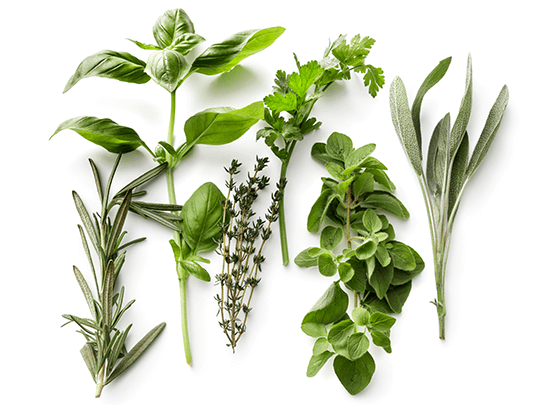3 myths about phytogenic feed additives in animal nutrition
“Too expensive, just essential oils, nature-identical vs. natural products – all the same,“ are only some of the phytogenics myths that float around the industry and world wide web. Today, I like to clarify some of these myths. Discover the truth.
Phytogenic feed additives are (NOT) just essential oils
Today, without a doubt, the term phytogenic is not used homogeneously. Phytochemical, phytobiotic, secondary plant compound. There is a great deal of scope for interpretation. Some even use the term essential oils synonymously to phytogenics. However, they represent only one category of plant-derived compounds.
The initial idea was to use natural plant extracts. It was Delacon’s founder who first recognized their promising results. He strongly believed that nature offers a vast potential to ensure sustainable livestock farming and food safety. Today, we use the knowledge of 30 years. We properly formulate phytogenic feed additives that are based on more than essential oils.
The effects of combining essential oils with other phytogenic ingredients are generally greater than the effects of a single ingredient. Combination products offer synergistic effects due to having multiple modes of action. When we develop products, we refer to a database of 7,500 botanical compounds. Fascinating, isn’t it?
Natural vs. nature-identical substances: It is (NOT) the same
In one of his articles, WATT Editor Ioannis Mavromichalis, Ph.D., deals with the variety of phytogenic products. “Some are natural, others are synthesized,” highlights the animal nutrition consultant. The difference is an essential nugget to know, that’s why I want to clarify this myth.
Depending on their source and location of origin, main active compounds in natural plants can have variations. It is more difficult to standardize them and to guarantee consistent quality. This is the reason why many phytogenic feed additive producers prefer to use nature-identical substances. However, only plant-derived (natural) phytogenic compounds harness synergies. They contain various major and minor active principles. We have learned that these substances can support each other, making the natural extract more effective than its single active principles.

Example of synergies released only by natural phytogenic compounds
Coriander and onion improve the activity of intestinal brush border enzymes, whereas the combination of specific essential oils and saponins stimulates the gene expression of crucial nutrient transporters in enterocytes.
Phytogenic feed additives in animal feeding: They are (NOT) too expensive
I recently published an article that shows how phytogenics resonate with audiences beyond the feed industry, with Millennial foodies in Thailand and the U.S. “Raised without antibiotics ever” and “raised environmentally friendly” are powerful messages for livestock producers, integrators, or other industry members to connect with consumers.
“Is it a good reason to give your thumbs-up for phytogenics,” I asked, and got an interesting answer: “One barrier to use phytogenic feed additives in animal nutrition is the price.” It seems to be a common point of discussion among industry members. Whereas the first view is usually on the costs, I think it is worth to have a second look at the ROI. Standardized phytogenic feed additives with measurable results bring measurable return on investment to livestock producers. From a holistic point of view, the investment in highly performing products with a proven ROI is doubtlessly a more sustainable and responsible approach for a profitable production process. Moreover, our customers teach us that profitability is not the only reason anymore to use phytogenics:
In Asia, we have seen that reasons are twofold to use phytogenic feed additives in animal nutrition strategies. Due to legislation issues, some are forced to replace antibiotic-growth promoters. Others are pioneers that want to position themselves as natural and safe food providers.
There are already users who made their own experiences with phytogenic products, they have monitored results and recognized the benefits for their businesses:

Katharina Mayrhuber
Katharina loves to learn, discover and tell feed and food stories globally - using Social Media, visual communications and media relations. She is currently not working actively at Delacon.










